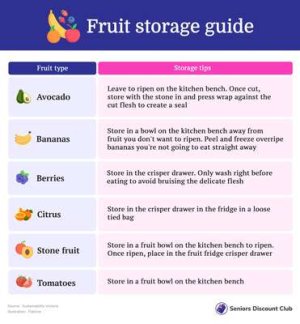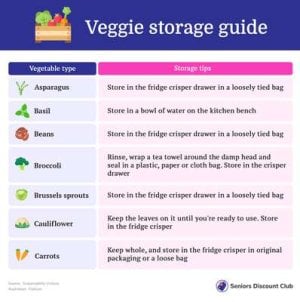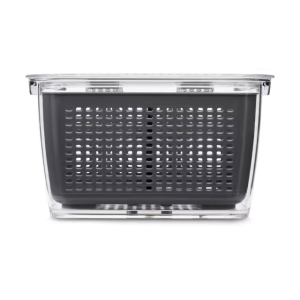The secret to long-lasting fruit and veggies—Cut down waste and save money!
There is no sight more discouraging than opening your fridge to find shrivelled carrots and wilting lettuce.
It feels like your money's going soggy, doesn't it? Not only is this a blow to your hard-earned cash, but also a dent in your vow to reduce food waste.
As part of our mission to help you save money, we're sharing a guide on extending the life of your fruit and veggies.
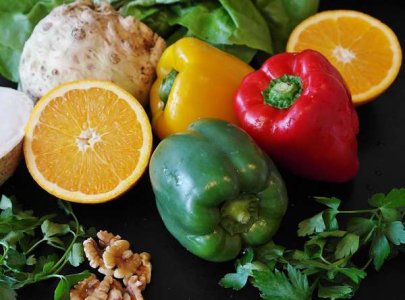
By following these tips, you'll discover the secret to long-lasting produce and thereby cutting down waste and saving money!
But first, let's clear some confusion, shall we?
Have you often pondered the difference between 'best before' and 'use-by' dates?
Well, they are not just fancy phrases that food companies throw around.
Commonwealth Scientific and Industrial Research Organisation's (CSIRO) Consumer Food Safety Spokesperson, Dr Rozita Vaskoska, said, 'The use-by dates are very firm. The product shouldn't be used (past that date).'
Now, the 'best before' date does have some flexibility. Vaskoska added, ‘When it comes to best before, they reflect the quality will drop after that date, it doesn’t mean it will be unsafe to use.’
Get ready for some handy storage tips! But before we delve in, let's talk about fridges.
You might think you're being smart by raising the temperature to save on power bills, but Dr Vaskoska advises against it.
The reason is that 'use-by' dates are set with the assumption that the fridge temperature is around 4 degrees Celsius.
Keep your fridge at 5 degrees Celsius or lower and your freezer at minus-20 degrees Celsius or colder.
Now, onto those cool saving tips and tricks!
Storage guide:
Let fruit rest on your bench till it ripens, then pop it into the fridge to halt over-ripening.
If you prefer not to leave food in the open, consider placing a mesh dome cover over your fruit bowl. This will help keep pests away.
For more detailed guidance, refer to Sustainability Victoria's guide on storing fresh produce:
Fruit placement:
Speaking of fruit, did you know that overripe fruit, like bananas, can speed up the ripening of other fruit and veggies? So, maybe keeping ripe bananas away from others is a good move.
However, if you wish to speed-ripen an avocado, put them next to the ripe bananas.
Now, if you are confronted with a mini-orchard of overripe fruit, fret not! Roast or stew them with a hint of vanilla and butter for a fruity treat!
Water your greens:
If your vegetables appear limp and wilted, don't rush to toss them out just yet.
You can revive vegetables like broccoli, carrots, and asparagus by placing them in a bowl of water in the fridge, similar to a vase of flowers.
Additionally, softer veggies can be utilised in soups, curries, and casseroles since their crunchiness won't be a factor in these recipes. So, be resourceful and make the most of your veggies!
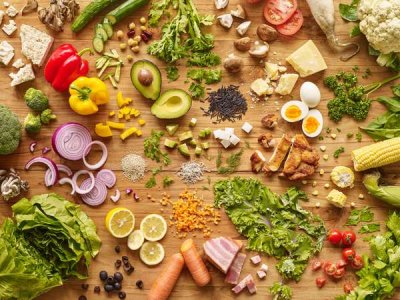
Keep your eggs in the fridge:
According to the CSIRO's website on refrigeration guidelines for perishable food items, keeping eggs in the fridge is recommended to extend their shelf life.
Storing them in their original cartons also helps minimise moisture loss through their shells.
Place your bread in the freezer:
Bread is one of the most commonly wasted foods, often leading to whole loaves going stale or developing mould before we can finish them.
To avoid waste, consider keeping bread in the freezer and taking out individual slices as needed.
When thawing, you can use a quick microwave zap or simply place the slices on a plate, covering them with another plate or a tea towel to prevent the bread from drying.
In case you end up with stale bread, tear it into pieces and bake or fry them to create delicious croutons for salads or to accompany scrambled eggs!
 Remember, the above tips and techniques guarantee to extend the freshness of your groceries and ensure that your wallet stays plump for longer.
Remember, the above tips and techniques guarantee to extend the freshness of your groceries and ensure that your wallet stays plump for longer.
Check out the CSIRO website for a general guide on the expected lifespan of various foods when stored properly.
Life's too short to eat bad food, members. So with these tips, now you can store your food like a pro!
Have you tried any of these storage techniques, or have additional methods that work well for you? Share your thoughts and experiences with us!
It feels like your money's going soggy, doesn't it? Not only is this a blow to your hard-earned cash, but also a dent in your vow to reduce food waste.
As part of our mission to help you save money, we're sharing a guide on extending the life of your fruit and veggies.

Food waste is a pressing global issue that contributes to environmental and social challenges. Image by RitaE from pixabay
By following these tips, you'll discover the secret to long-lasting produce and thereby cutting down waste and saving money!
But first, let's clear some confusion, shall we?
Have you often pondered the difference between 'best before' and 'use-by' dates?
Well, they are not just fancy phrases that food companies throw around.
Commonwealth Scientific and Industrial Research Organisation's (CSIRO) Consumer Food Safety Spokesperson, Dr Rozita Vaskoska, said, 'The use-by dates are very firm. The product shouldn't be used (past that date).'
Now, the 'best before' date does have some flexibility. Vaskoska added, ‘When it comes to best before, they reflect the quality will drop after that date, it doesn’t mean it will be unsafe to use.’
Get ready for some handy storage tips! But before we delve in, let's talk about fridges.
You might think you're being smart by raising the temperature to save on power bills, but Dr Vaskoska advises against it.
The reason is that 'use-by' dates are set with the assumption that the fridge temperature is around 4 degrees Celsius.
Keep your fridge at 5 degrees Celsius or lower and your freezer at minus-20 degrees Celsius or colder.
Now, onto those cool saving tips and tricks!
Storage guide:
Let fruit rest on your bench till it ripens, then pop it into the fridge to halt over-ripening.
If you prefer not to leave food in the open, consider placing a mesh dome cover over your fruit bowl. This will help keep pests away.
For more detailed guidance, refer to Sustainability Victoria's guide on storing fresh produce:
Fruit placement:
Speaking of fruit, did you know that overripe fruit, like bananas, can speed up the ripening of other fruit and veggies? So, maybe keeping ripe bananas away from others is a good move.
However, if you wish to speed-ripen an avocado, put them next to the ripe bananas.
Now, if you are confronted with a mini-orchard of overripe fruit, fret not! Roast or stew them with a hint of vanilla and butter for a fruity treat!
Water your greens:
If your vegetables appear limp and wilted, don't rush to toss them out just yet.
You can revive vegetables like broccoli, carrots, and asparagus by placing them in a bowl of water in the fridge, similar to a vase of flowers.
Additionally, softer veggies can be utilised in soups, curries, and casseroles since their crunchiness won't be a factor in these recipes. So, be resourceful and make the most of your veggies!

By taking simple steps like storing fruit and vegetables properly, planning meals ahead, and using leftovers creatively, we can significantly reduce food waste and extend the lifespan of these nutritious resources. Image by yu_grino from unsplash
Keep your eggs in the fridge:
According to the CSIRO's website on refrigeration guidelines for perishable food items, keeping eggs in the fridge is recommended to extend their shelf life.
Storing them in their original cartons also helps minimise moisture loss through their shells.
Place your bread in the freezer:
Bread is one of the most commonly wasted foods, often leading to whole loaves going stale or developing mould before we can finish them.
To avoid waste, consider keeping bread in the freezer and taking out individual slices as needed.
When thawing, you can use a quick microwave zap or simply place the slices on a plate, covering them with another plate or a tea towel to prevent the bread from drying.
In case you end up with stale bread, tear it into pieces and bake or fry them to create delicious croutons for salads or to accompany scrambled eggs!
Key Takeaways
- There's a difference between 'best before' and 'use-by' dates, with the former indicating a decrease in quality but not necessarily safety after that date, assuming the product has been stored correctly.
- Refrigerator and freezer temperatures should ideally be 5 degrees Celsius or colder and minus-20 degrees Celsius or colder, respectively, to ensure safe storage of items.
- Veggies and fruit should be stored properly in specific ways to increase their longevity and to prevent premature ripening or rotting, with overripe fruit having the potential to expedite the ripening process of nearby produce.
- Specific storage and preparation methods can be used for groceries such as bread and greens to reduce waste and enhance their shelf life.
Check out the CSIRO website for a general guide on the expected lifespan of various foods when stored properly.
Life's too short to eat bad food, members. So with these tips, now you can store your food like a pro!
Have you tried any of these storage techniques, or have additional methods that work well for you? Share your thoughts and experiences with us!

